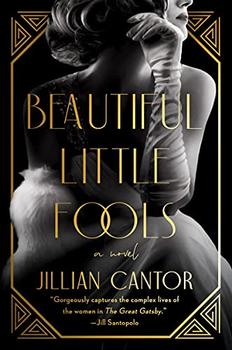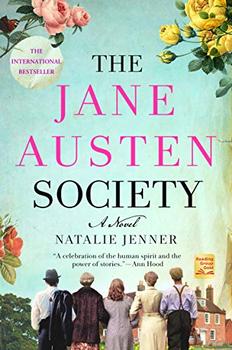Summary | Excerpt | Reading Guide | Reviews | Beyond the book | Read-Alikes | Genres & Themes | Author Bio

Pride and Prejudice was only half the story. Jo Baker dares to take us beyond the drawing rooms of Jane Austen's classic and creates a vivid, fascinating, fully realized world that is wholly her own.
Pride and Prejudice was only half the story.
If Elizabeth Bennet had the washing of her own petticoats, Sarah often thought, she'd most likely be a sight more careful with them.
In this irresistibly imagined below stairs answer to Pride and Prejudice, the servants take center stage. Sarah, the orphaned housemaid, spends her days scrubbing the laundry, polishing the floors, and emptying the chamber pots for the Bennet household. But there is just as much romance, heartbreak, and intrigue downstairs at Longbourn as there is upstairs. When a mysterious new footman arrives, the orderly realm of the servants' hall threatens to be completely, perhaps irrevocably, upended.
Jo Baker dares to take us beyond the drawing rooms of Jane Austen's classic - into the often overlooked domain of the stern housekeeper and the starry-eyed kitchen maid, into the gritty daily particulars faced by the lower classes in Regency England during the Napoleonic Wars - and, in doing so, creates a vivid, fascinating, fully realized world that is wholly her own.
Pride and Prejudice and Longbourn create a delightfully unified whole. It is possible to read one without the other, but reading them together provides a broad and nuanced view of early 19th century England - and takes readers into the lives of some of literature's most beloved characters...continued
Full Review
(649 words)
This review is available to non-members for a limited time. For full access,
become a member today.
(Reviewed by Sarah Sacha Dollacker).
In Longbourn, the housemaid Sarah's frustration with the laundry would have been shared by anyone who cleaned clothes during the early 19th century. Our modern process of sorting, dumping into a machine, pouring in soap, and pressing a button is an embarrasingly wonderful diminution of this once complicated and time-intensive process.
 Doing the laundry during this period was such a daunting task that even mistresses of households that employed servants often pitched in. The wealthier families were able to employ servants who, like Sarah, focused mainly on laundry duties. For most families without dedicated laundresses, two days a week were set aside for doing laundry. Washing, boiling, and rinsing a standard load of laundry required ...
Doing the laundry during this period was such a daunting task that even mistresses of households that employed servants often pitched in. The wealthier families were able to employ servants who, like Sarah, focused mainly on laundry duties. For most families without dedicated laundresses, two days a week were set aside for doing laundry. Washing, boiling, and rinsing a standard load of laundry required ...
This "beyond the book" feature is available to non-members for a limited time. Join today for full access.

If you liked Longbourn, try these:

by Jillian Cantor
Published 2022
USA Today bestselling author Jillian Cantor reimagines and expands on the literary classic The Great Gatsby in this atmospheric historical novel with echoes of Big Little Lies, told in three women's alternating voices.

by Natalie Jenner
Published 2021
Just after the Second World War, in the small English village of Chawton, an unusual but like-minded group of people band together to attempt something remarkable.
Too often we enjoy the comfort of opinion without the discomfort of thought.
Click Here to find out who said this, as well as discovering other famous literary quotes!